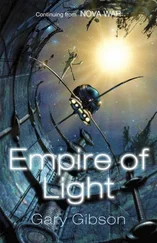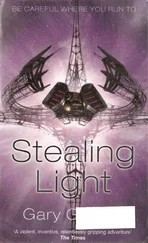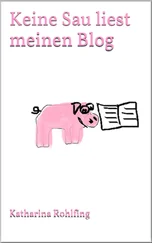Gary Lutz - Partial List of People to Bleach
Здесь есть возможность читать онлайн «Gary Lutz - Partial List of People to Bleach» весь текст электронной книги совершенно бесплатно (целиком полную версию без сокращений). В некоторых случаях можно слушать аудио, скачать через торрент в формате fb2 и присутствует краткое содержание. Год выпуска: 2013, Издательство: Future Tense Books, Жанр: Современная проза, на английском языке. Описание произведения, (предисловие) а так же отзывы посетителей доступны на портале библиотеки ЛибКат.
- Название:Partial List of People to Bleach
- Автор:
- Издательство:Future Tense Books
- Жанр:
- Год:2013
- ISBN:нет данных
- Рейтинг книги:5 / 5. Голосов: 1
-
Избранное:Добавить в избранное
- Отзывы:
-
Ваша оценка:
- 100
- 1
- 2
- 3
- 4
- 5
Partial List of People to Bleach: краткое содержание, описание и аннотация
Предлагаем к чтению аннотацию, описание, краткое содержание или предисловие (зависит от того, что написал сам автор книги «Partial List of People to Bleach»). Если вы не нашли необходимую информацию о книге — напишите в комментариях, мы постараемся отыскать её.
Partial List of People to Bleach — читать онлайн бесплатно полную книгу (весь текст) целиком
Ниже представлен текст книги, разбитый по страницам. Система сохранения места последней прочитанной страницы, позволяет с удобством читать онлайн бесплатно книгу «Partial List of People to Bleach», без необходимости каждый раз заново искать на чём Вы остановились. Поставьте закладку, и сможете в любой момент перейти на страницу, на которой закончили чтение.
Интервал:
Закладка:
I took a seat on the toilet.
Did I agree, in maybe theory, that there were the taken, and the takers, and, between them, the kinds catastrophizing quietly?
A hand came suffering upward from the suds.
Tell the truth, he said: didn’t I now feel teamed?
I sat some more, then felt fickle, went back downstairs to sit a while longer with the sister. But the arms I put around people always met up again with each other.
It was fitting to call our sessions at our desks “shifts,” because shift I did — I mean, I fended, scraped along, moved from one point to a point just beyond. There was a lunchroom where I referred crackers backhandedly into my mouth, and a lobby with a guard who stood with hirsute goodwill behind a counter, and a restroom off the lobby. Above the urinals: a “please flush” sign, with a clip-art elephant and “Don’t Forget!” scripted down its trunk. But I wanted my piss pooling, maturing, in the bowl with everyone else’s.
The day widened as you tired of it.
This still was Thursday. Then Friday finally underfoot. Then a three-day weekend, a second-string holiday thought necessary to observe.
I knew enough to go home. The route was more formal now, with toll-takers trained to thank. Then an oncoming car not far from the turnoff, and I slipped up — got the windshield wipers going by mistake.
I was afraid the swipes might be taken for communication or, worse yet, a wave.
Then a pyloned bridge, the spotless boulevards, thinning streets of close-set addresses.
My folks! They had each overshot their marriage but otherwise went about ungulfed by life. They welcomed me back to their shams. Nothing was amiss or cosmic in my old, dormered room upstairs. A promising first gush of sleep, and then I awoke to the usual voices pluming upward through the baseboards.
I had not got a whole lot out of my heritage except a hoarseness like his, a poked heart on the order of her own.
They were savvier in their lamentations now.
Forty I was, and then fortier, fluking through my annual reviews, carrying my deskside trash home at the end of a day rather than running any risk of its being examined.
Just an inkling of skyline to this city. Nobody had thought to get lyrical about it yet. I was living on the brink of downtown but not, so to speak, alone.
There was an injuring party in his tindery fifties, and another, only lately unbunched from a family, querying out of some hole.
Then one who may have gone on to ape something
wonderful.
And yet another, much younger: wronged early on, then doctored, restarted, struck by blows again. She had eyes of a deep, speaking green, but it was a green that spoke differently in a day’s time.
I could roll off the names, the work numbers, of them all.
I could let a little thing or two ruin every other thing.
Things true of me should be even truer of you.
Sometimes people are too close to call.
The Sentence Is a Lonely Place
I came to language only late and only peculiarly. I grew up in a household where the only books were the telephone book and some coloring books. Magazines, though, were called books, but only one magazine ever came into the house: a now-long-gone photographic general-interest weekly commandingly named Look . Words in this household were not often brought into play. There were no discussions that I can remember, no occasions when language was called for at length or in bulk. Words seemed to be intruders, blown into the rooms from otherwhere through the speakers of the television set or the radio, and were easily ignorable as something alien, something not germane to the forlornities of life within the house, and readily shut off or shut out. Under our roof, there was more divulgence and expressiveness to be made out in the closing or opening of doors, in footfalls, in coughs and stomach growlings and other bodily ballyhoo, than in statements exchanged in occasional conversation. Words seemed to be a last resort: you had recourse to speech only if everything else failed. From early on, it seemed to me that the forming and the release of words were the least significant of the mouth’s activities. When words did come hazarding out of a mouth, they did not lastingly change anything about the mouth they were coming out of or the face that hosted the mouth. They often seemed to have been put in there by some force exterior to the person speaking, and they died out in the air. They were not something I could possess or store up. Words certainly weren’t inside me.
A word that I remember coming out of my parents’ mouths a lot was imagine —as in “I imagine we’re going to have rain.” I soon succumbed to the notion that to imagine was to claim to know in advance an entirely forgettable outcome. A calendar was hung in the kitchen as if to say: Expect more of the same.
I thus spent about the first thirteen or fourteen years of my life not having much of anything to do with language. I am told that once in a while I spoke up. I am told that I had a friend at some point, and this friend often corrected my pronunciations, which tended to be overliteral, and deviant in their distribution of stresses. Any word I spoke, often as not, sounded like two words of similar length that had crashed into each other. Word after word emerged from my mouth as a mumbled mongrel. I was often asked to repeat things, and the repeated version came forth as a skeptical variant of the first one and was usually offered at a much lower volume. When a preposition was called for in a statement, I often chose an unfitting one. If a classmate asked me, “When is band practice?” I would be likely to answer, “At fifth period.” I did not have many listeners, and I did not listen to myself. Things I spoke came out sounding instantly disowned.
Childhood in my generation, an unpivotal generation, wasn’t necessarily a witnessed phenomenon. Large portions of my day went unobserved by anyone else, even in classrooms. Anybody glimpsing me for an instant might have described me as a kid with his nose stuck in a book, but nobody would have noticed that I wasn’t reading. I had started to gravitate toward books only because a book was a kind of steadying accessory, a prop, something to grip — a simple occupation for my hands. (Much later, I was relieved to learn that librarians refer to the books and other printed matter in their collections as “holdings.”) And at some point I started to enjoy having a book open before me and beholding the comfortingly justified lineups and amassments of words. I liked seeing words on parade on the pages, but I never got in step with them, I never entered into the processions. I doubt that it often even occurred to me to read the books, although I know I knew how. Instead, I liked how anything small (a pretzel crumb, perhaps) that fell into the gutter of the book — that troughlike place where facing pages meet — stayed in there and was preserved. A book was, for me, an acquisitive thing, absorbing, accepting, taking into itself whatever was dropped into it. An opened book even seemed to me an invitation to practice hygiene over it — to peel off the rim of a fingernail, say, and let the thing find its way down onto a page. The book became a repository of the body’s off-trickles, extrusions, biological rubbish and remains; it became a reliquary of sorts. I was thuswise now archiving chance fragments, sometimes choice fragments, of my life. I was putting things into the books instead of withdrawing their offered contents. As usual, I had things backward.
Worse, the reading we were doing in school was almost always reading done sleepily aloud, our lessons consisting of listening to the chapters of a textbook, my classmates and I taking our compulsory turns at droning through a double-columned page or two; and I, for one, never paid much mind to what was being read. The words on the page seemed to have little utility other than as mere prompts or often misleading cues for the sluggard sounds we were expected to produce. The words on the page did not seem to have solid enough a presence to exist independently of the sounds. I had no sense that a book read in silence and in private could offer me something. I can’t remember reading anything with much comprehension until eighth grade, when, studying for a science test for once, I decided to try making my way quietly through the chapter from start to finish — it was a chapter about magnets — and found myself forced to form the sounds of the words in my head as I read. Many of the words were unfamiliar to me, but the words fizzed and popped and tinkled and bonged. I was reading so slowly that in many a word I heard the scrunch and flump of the consonants and the peal of the vowels. Granted, I wasn’t retaining much of anything, but almost every word now struck me as a provocative hullabaloo. This was my first real lesson about language — this inkling that a word is a solid, something firm and palpable. It was news to me that a word is matter, that it exists in tactual materiality, that it has a cubic bulk. Only on the page is it flat and undensified. In the mouth and in the mind it is three-dimensional, and there are parts that shoot out from it or sink into its syntactic surround. But this discovery was of no help to me in English class, because when we had to write, I could never call up any of the brassy and racketing words I had read, and fell back on the thin, flat, default vocabulary of my life at home, words spoken because no others were known or available. Even when I started reading vocabulary-improvement books, I never seemed capable of importing into my sentences any of the vivid specimens from the lists I had now begun to memorize. My writing was dividered from the arrayed opulences in the vocabulary books. Language remained beyond me. My distance from language continued even through college, even through graduate school. The words I loved were in a different part of me, not accessible to the part of me that was required to make statements on paper.
Читать дальшеИнтервал:
Закладка:
Похожие книги на «Partial List of People to Bleach»
Представляем Вашему вниманию похожие книги на «Partial List of People to Bleach» списком для выбора. Мы отобрали схожую по названию и смыслу литературу в надежде предоставить читателям больше вариантов отыскать новые, интересные, ещё непрочитанные произведения.
Обсуждение, отзывы о книге «Partial List of People to Bleach» и просто собственные мнения читателей. Оставьте ваши комментарии, напишите, что Вы думаете о произведении, его смысле или главных героях. Укажите что конкретно понравилось, а что нет, и почему Вы так считаете.












